Related Research Articles

In geology and mineralogy, a mineral or mineral species is, broadly speaking, a solid chemical compound with a fairly well-defined chemical composition and a specific crystal structure, that occurs naturally in pure form.
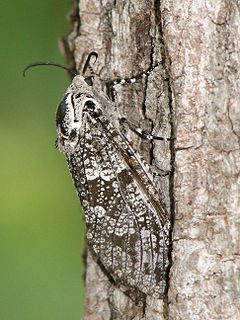
The Cossinae are the nominate subfamily of the Cossidae. The caterpillars of several Cossinae species, such as the carpenterworm and the goat moth, are significant pests. On the other hand, in Chile the caterpillars of the Chilean moth are collected on a commercial scale for sale as fishing bait and terrarium pet food; they are usually called "butterworms" in international trade.

Crambinae is a large subfamily of the lepidopteran family Crambidae, the crambid snout moths. It currently includes over 1,800 species worldwide. The larvae are root feeders or stem borers, mostly on grasses. A few species are pests of sod grasses, maize, sugar cane, rice, and other Poaceae. The monophyly of this group is supported by the structure of the tympanal organs and the phallus attached medially to the juxta.

Argyria is a genus of moths of the family Crambidae. The genus was described by Jacob Hübner in 1818.

Bocchoris is a genus of moths of the family Crambidae described by Moore in 1885.

Diatraea is a genus of moths of the family Crambidae.
Hileithia is a genus of moths of the family Crambidae.
Lamprosema is a genus of moths of the family Crambidae described by Jacob Hübner in 1823.
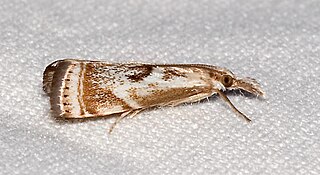
Microcrambus is a genus of moths of the family Crambidae. The genus was described by Stanisław Błeszyński in 1963.

Xubida is a genus of moths of the family Crambidae.
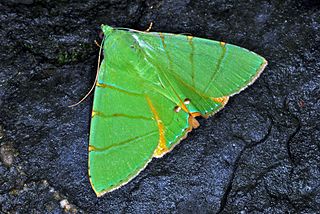
Eulepidotis is a genus of moths of the family Erebidae erected by Jacob Hübner in 1823.

Harrison Gray Dyar Jr. was an American entomologist.

The Chrysauginae are a subfamily of snout moths. They are primarily Neotropical and include about 400 described species.
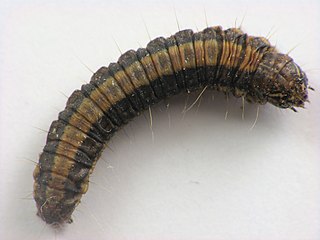
The Epipaschiinae are a subfamily of snout moths. Almost 600 species are known today, which are found mainly in the tropics and subtropics. Some occur in temperate regions, but the subfamily is apparently completely absent from Europe, at least as native species. A few Epipaschiinae are crop pests that may occasionally become economically significant.
Rumatha jacumba is a species of snout moth in the genus Rumatha. It was described by Herbert H. Neunzig in 1997. It is found in North America, including California and Nevada.
Rumatha bihinda is a species of snout moth in the genus Rumatha. It was described by Harrison Gray Dyar Jr. in 1922. It is found in North America, including California, Texas, New Mexico, Arizona and Nevada.
Rumatha polingella is a species of snout moth in the genus Rumatha. It was described by Harrison Gray Dyar Jr. in 1906. It is found in North America, including California, Texas and southern Arizona.
Givira is a genus of moths in the family Cossidae.
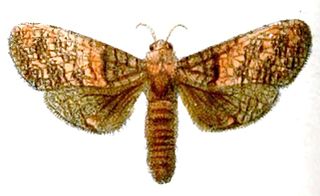
Hypopta is a genus of moths in the family Cossidae.
Glaphyriinae is a subfamily of the lepidopteran family Crambidae. It was described by William Trowbridge Merrifield Forbes in 1923
References
- 1 2 Nuss, M.; et al. (2003–2011). "GlobIZ search". Global Information System on Pyraloidea. Retrieved October 7, 2011.
| This Phycitinae-related article is a stub. You can help Wikipedia by expanding it. |